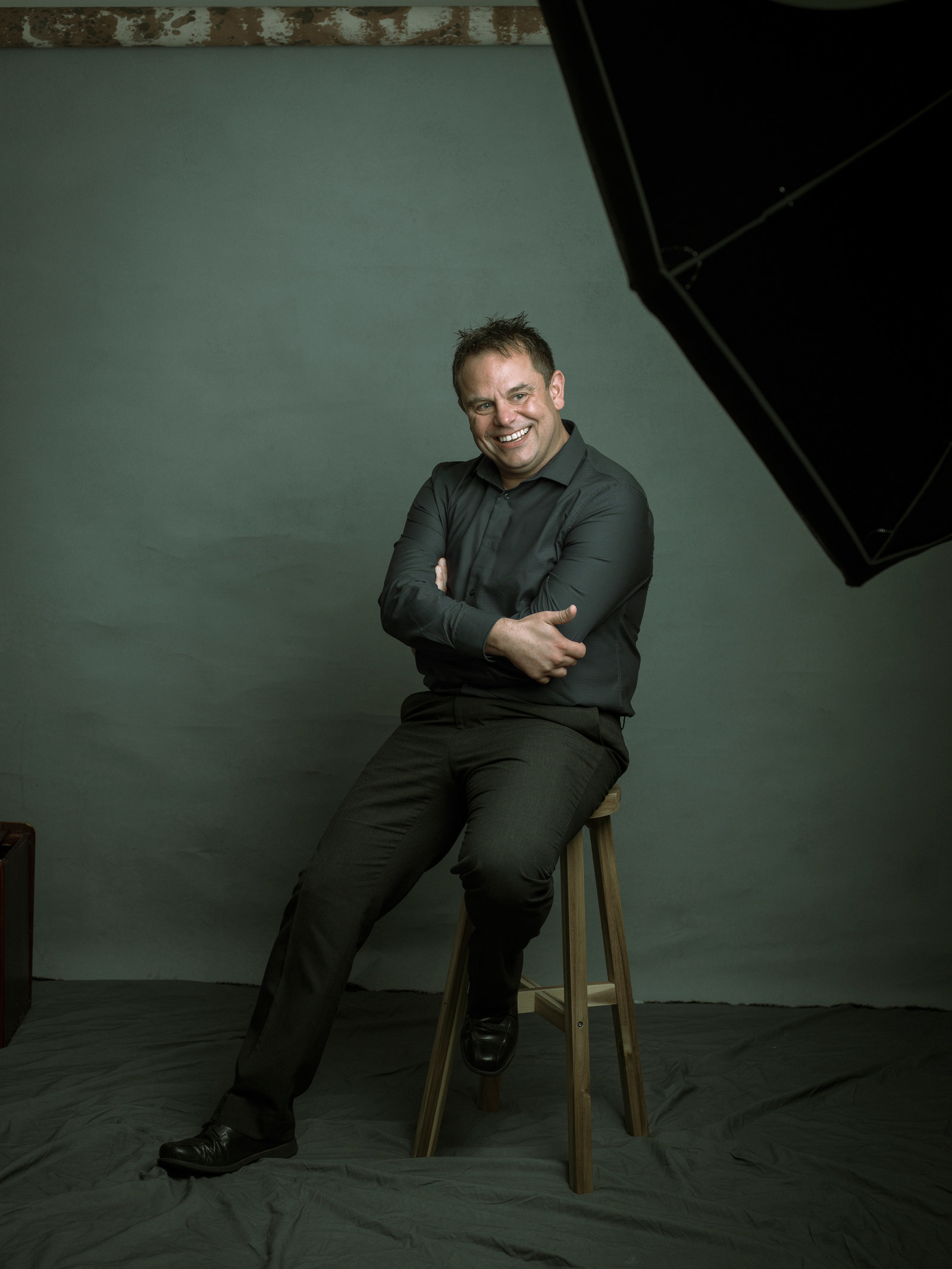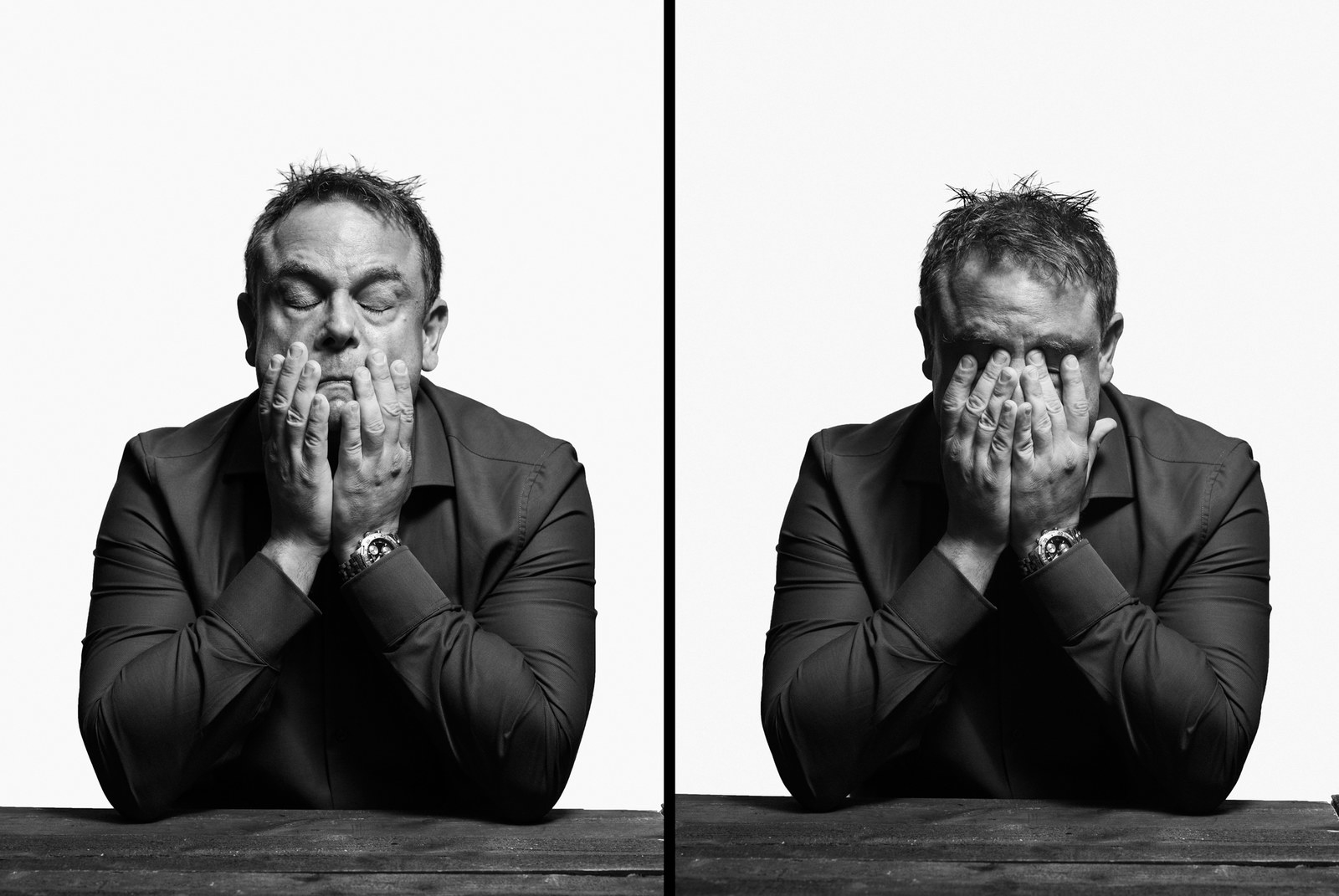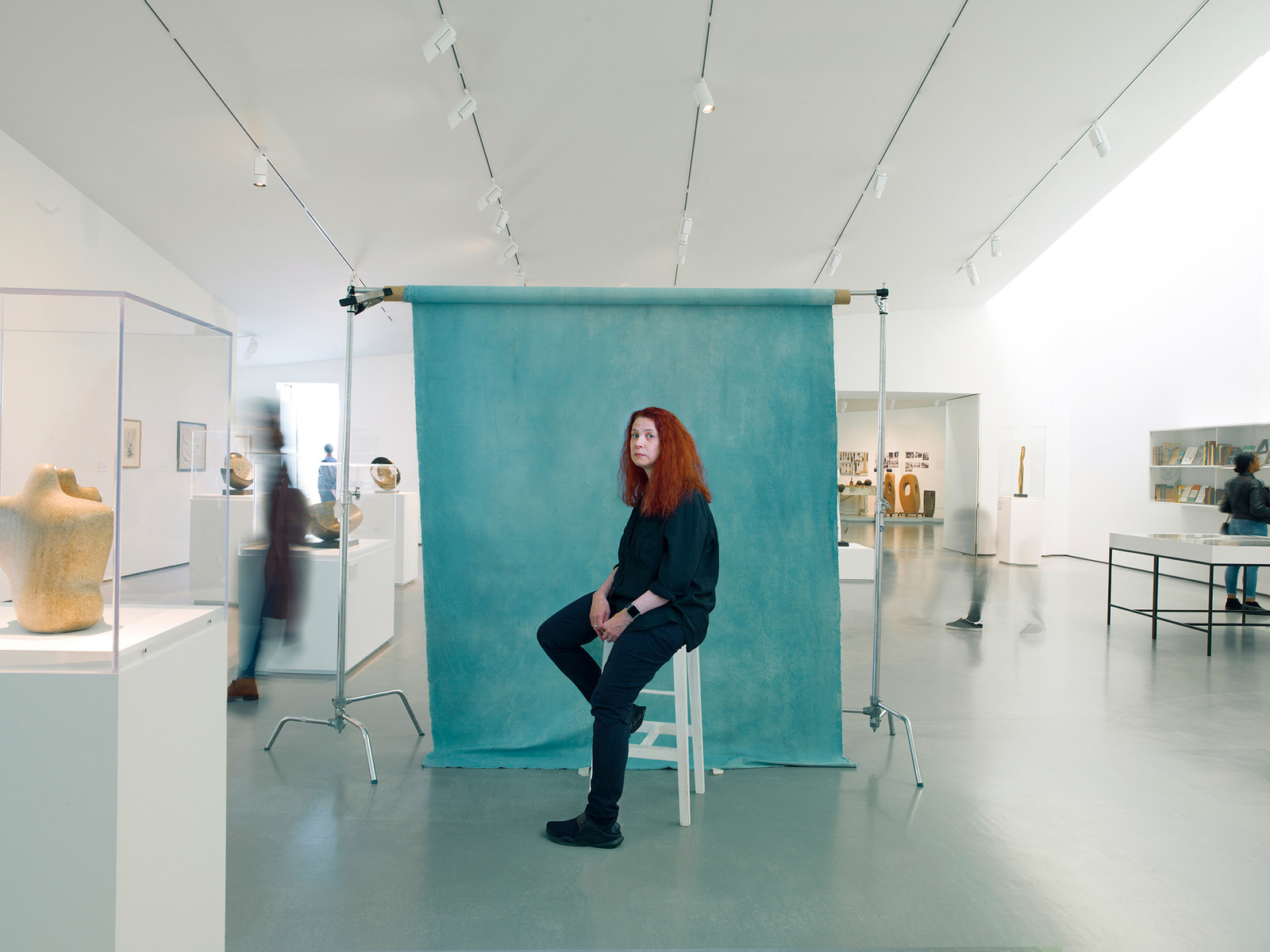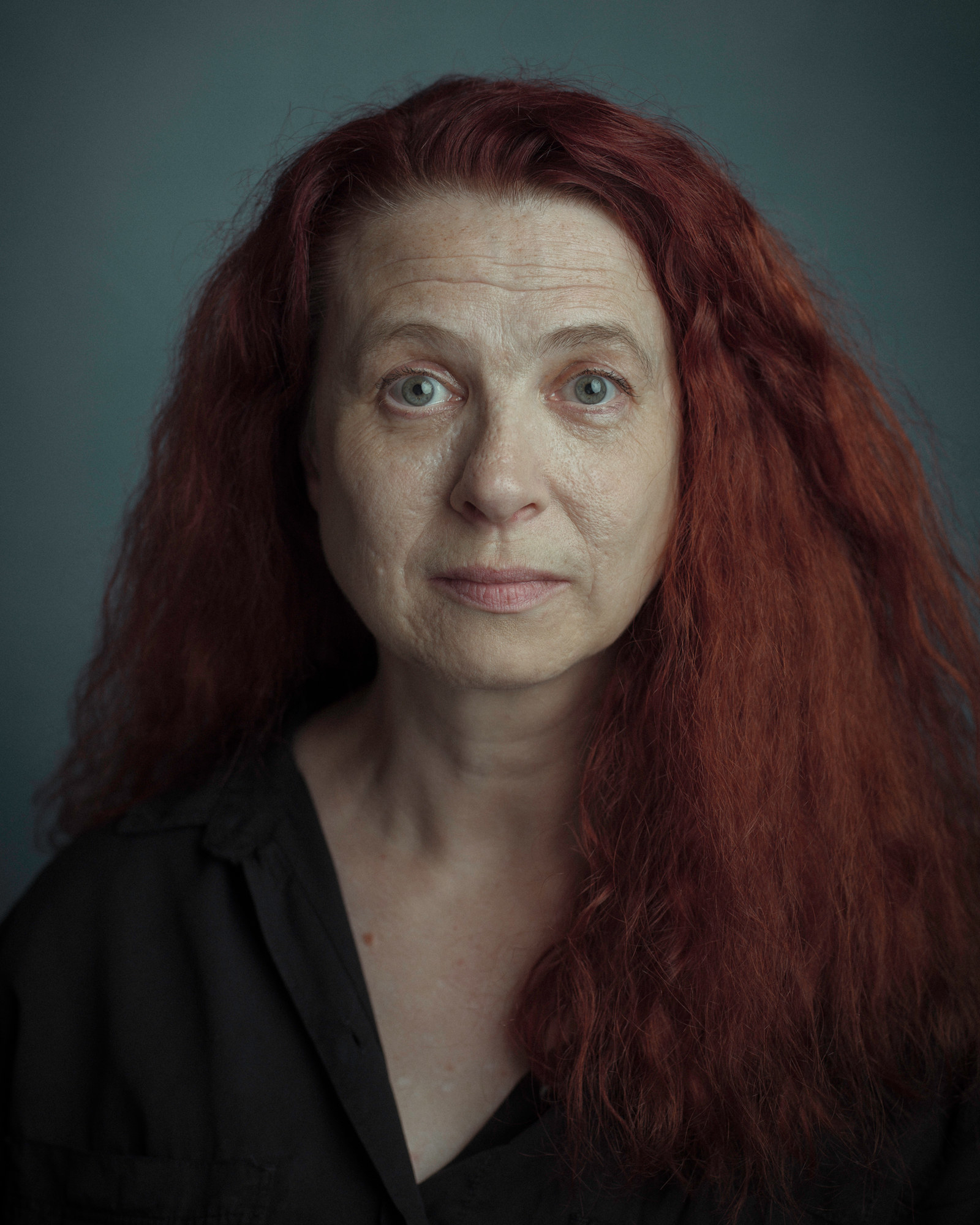A noisy pub is not the ideal place to try out a new medication. But the first time Sonja (who spoke on condition we only use her first name) took a pill to treat her newly diagnosed ADHD, the pub was the perfect location. With the background music and conversation at the next table in full flow, she tried to read a book. The noises around her might have been minor frustrations at most for anyone else, but for Sonja they would normally mean she was completely unable to focus.
She couldn't read books at all before – let alone in a pub. “I would go through two pages and not have any idea what I read, I'd be thinking of something entirely different.”
Her meds passed with flying colours. “I could actually focus on multiple things at the same time,” she says. “I could hear the music, I could hear some women talking at the next table, and I would still be able to read what I was reading. I was really alert.”
Taking the pill was life-changing. Sonja had always had trouble concentrating, and often felt like she was in her own world. She would constantly switch from one task to another. “I didn't really know what was going on with me, but when I was young I just figured out that it was a part of my personality,” she says of the symptoms she now knows to be attention deficit hyperactivity disorder, or ADHD.
But ADHD wasn’t what doctors initially thought Sonja had. Before being diagnosed with the condition, Sonja spent almost a decade going to medical professionals. Since 2008 she’d been given other diagnoses, including bipolar disorder and borderline personality disorder, with the corresponding antipsychotic medications, antidepressants, and therapy, but none of it worked. Worse than that – some of the medication made her feel like she was "in a coma”, and made her suicidal thoughts worse.
ADHD is a neurological disorder that can make people inattentive, impulsive, and hyperactive. But symptoms can also include insomnia, emotional instability, a wandering mind, getting side-tracked easily, and feeling restless. It’s thought that ADHD affects around 3% of the adult population, and research suggests the rate of undiagnosed ADHD is 10% or more in patients attending mental health services.

The trouble for many adults with undiagnosed ADHD is that it can look like a lot of other mental health conditions, especially when it’s severe. “What we're discovering is that with many patients, before ADHD is recognised, they have already been given a range of other diagnoses and they're not always appropriate or correct,” says Philip Asherson, a professor of molecular psychiatry at King’s College London. “Some of the most common ones are personality disorder [and] bipolar disorder, and the other common ones are anxiety and depression.”
Sonja is not alone. Three other people BuzzFeed News interviewed said they struggled, two for decades, with mental health issues they believe stem from untreated ADHD that doctors didn’t spot. They talked of failed exams, piles of unopened letters, broken relationships, and lost jobs that they believe are down to ADHD that they weren’t given the right help for. They all have in common several other mental health diagnoses and a string of medications that at best just didn’t work, and at worst could have been dangerous.
The people we spoke to – all adults – are a relatively new kind of case for the medical establishment. Adult ADHD was only recognised by the National Institute for Health and Care Excellence, or NICE, in 2008. “It's not so much the difficulty in making the diagnosis, it's that adult mental health is still relatively new to this condition, so often the expertise and the knowledge is relatively lacking,” says Asherson, who is also president of the UK Adult ADHD Network, which aims to help mental health professionals who work with adults with ADHD. “I think that’s a big problem.”
Last week NICE published a draft update to its guidelines that urged doctors to “be mindful” of people who could have ADHD but often get overlooked. It particularly mentioned women and girls who may not display “classic” symptoms and people with other mental health conditions.
Some people do have those conditions in addition to their unrecognised ADHD. But for others, the ADHD just looks like something else.


Gareth Gregan, a recent graduate of Trinity College Dublin who now lives in London, says his previous diagnoses of anxiety and depression were “like a jumper that didn’t fit”.
Gregan got through school just fine, but when he reached uni, things started to fall apart. He failed two consecutive years, where previously he’d been getting top grades. “I'd sit exams in May, fail them, resit them in August, and fail them again. It was like this cyclical process that wasn't actually going anywhere.”
He soon got diagnosed with anxiety and depression. “I was going down a very destructive route. I was getting very depressed because I didn’t know what was wrong with me, and I wasn’t able to put any structure or organisation into my life. I couldn’t imagine [what would have happened] if I’d continued down that road for another 25 years.”
The medications he was put on to help the anxiety and depression did make a difference, he says. “They stop the bleed, but without ever addressing the underlying cause of it themselves. They were a beneficial short-term solution to get me out of a slump. But I didn't actually need to stay on them at all once I got diagnosed with ADHD.”
“I wouldn’t be here if I hadn’t got that diagnosis. God knows where I’d be.”
To get the diagnosis Gregan saw a psychiatrist, who referred him to a psychologist. The psychologist gave him tasks like organising blocks, or circling places on a map, that he had to complete both with and without a beeping noise in the background. With the beep, he fell apart. “I'd just throw all the blocks up in the air and be like, ‘I can't concentrate on that,’ because the bleep noise was such a distraction,” he says.
When it finally came, his diagnosis felt like “turning on a light switch”, he says. He had some exam resits in May 2016, shortly after starting treatment for ADHD, and they went well. “I had the experience of coming out of exams after actually having been able to study for them like a normal student.”
Gregan thinks his anxiety and depression were symptoms of his untreated ADHD. Now he’s on Ritalin, and it’s working. “It gives me the ability to focus on a particular task,” he says. “Instead of being like, ‘I have 20 things to do and I'm going to try and do them all at once,’ it’s like, ‘No. I'm going to sit down and send this email, then I'm going to do this lecture, and I'll do this homework afterwards.’”
He thinks adults with ADHD fall through the cracks because people assume if you have the condition you’ll get diagnosed with it as a child, or that you’ll grow out of it anyway. He also thinks some people don’t view ADHD as a “real thing”. The public discussion around ADHD "did dissuade me from looking for a diagnosis," he says, "because I thought, Oh, that’s not much of a real thing.”
With his diagnosis and new meds, Gregan managed to finish his degree and get an internship in London. “I wouldn’t be here if I hadn’t got that diagnosis,” he says. “God knows where I’d be.”

Getting the wrong diagnosis – and treatment for it – can be frustrating. It can also be dangerous. “The risks of a drug are normally outweighed by the benefits,” says Asherson, "but if there aren't any benefits then it becomes all risk. They might get put on antipsychotics to calm them down, and have a lot of side effects."
Even putting a lot of time into something like cognitive behavioural therapy that’s not working for someone can have a negative effect. “People don't talk much about risks, but spending a lot of time and effort in something that really isn't going anywhere might be quite difficult for somebody,” he says.
"The risks of a drug are normally outweighed by the benefits, but if there aren't benefits it becomes all risk."
It’s not unusual for people with ADHD to develop low self-esteem. “Because they're just constantly struggling and finding things difficult and then they start to feel quite bad about themselves,” says Asherson.
Last year Asherson published a paper in the journal Lancet Psychiatry arguing that a failure to recognise and a lack of resources needed treat adult ADHD is hurting people who seek help for mental health problems. “Treatment of adult ADHD in Europe and many other regions of the world is not yet common practice, and diagnostic services are often unavailable or restricted to a few specialist centres,” he and his coauthors wrote. “This situation is remarkable given the strong evidence base for safe and effective treatments.”

The stereotypical image of a boisterous kid acting up in class doesn’t carry over to adults who have ADHD. A lot of the symptoms in adults are ones you see in other conditions: “They can't concentrate well, they don't sleep very well, and so all of that is part of anxiety and depression; they maybe have difficult social interactions, which makes you think about personality disorder; and their moods tend to swing around a lot, and that makes people think of bipolar,” Asherson says.
And there are other symptoms too, he says, that people might not immediately link to ADHD, like emotional instability. Specialists know this, he says, but it’s not part of the clinical criteria for the condition. That means that while someone well-versed in spotting and diagnosing adult ADHD might recognise that someone who’s emotionally unstable could have the condition, GPs and other health professionals who are less familiar with ADHD are not likely to make the link, and will probably assume emotional instability is a symptom of something else – such as borderline personality disorder.
One of Asherson’s projects looked at patients who were diagnosed with borderline personality disorder. “What we’re finding is that around a third to a half meet ADHD criteria, so that’s a huge proportion,” he says. For some of those patients, he says, ADHD will be the main problem, and treating it will be a huge help, like it was for Sonja.
But that won’t be the case for everybody. Even after treating possible ADHD symptoms, some people don’t get better. “We also know that you treat some people like that and they don't get better, and it turns out that there are probably a range of problems,” says Asherson. “And ADHD doesn't always respond to treatment.”


Years without a diagnosis can make life agonising. When Sonja moved to London from her native Finland in 2006, she started noticing more severe problems and couldn’t keep hold of a job. “I was working in a clothing store, that's the last job I've had for a very long time,” she says. “When I was made to stand and be quiet, watching to make sure people didn't steal stuff for two hours, it was like torture to me, I just couldn't do it. I was coming up with excuses like 'I have to go to the toilet,' 'I have to go do this.' I just had to move, I couldn't stand there.” Then she started getting more anxious and having problems with food. “I couldn't breathe, and I started eating stuff like five burgers or five packs of cookies, then I would throw up all the food I was eating on my break. I was doing that to have a release from what I was feeling.”
Eventually she was sacked, and later that year her father died. She went to see her GP and told them she was really worried about how she was doing. They referred her to a specialist, and that’s how, in 2008, her first label arrived: bipolar disorder, alongside anxiety and panic attacks. She was given “all kinds” of medications, but didn’t get on with them.
“I was taking them for a while and they made me really just tired, like I wasn't even existing, like a dead person really,” she says. “I couldn't lift my head, it was weird. That was so frightening to me that I stopped the medication. I couldn't do anything. It made my suicidal thoughts worse.”
"Anxiety and depression have stemmed from my inability to have a quiet mind."
Sonja struggled on for years, eventually changing to a new GP who told her they had no record of her bipolar disorder diagnosis. She explained her symptoms: constant fidgeting, and not being able to focus, sit down for more than five minutes, or finish tasks, as well as anxiety, depression, and suicidal feelings. Then came a new diagnosis from a different specialist: borderline and narcissistic personality disorder, for which she started year-long schema therapy in November 2015. (Schema therapy is a type of psychotherapy centred around patterns of thoughts or behaviours, often used to treat personality disorders.)
It was only by chance that, in a waiting room when she was halfway through that therapy, she spotted a note on the wall asking people who’d been diagnosed with borderline personality disorder or ADHD if they were interested in participating in research. She went for it. “I thought maybe I could learn a little bit more about myself, and maybe I could help some people,” she says.
She went along to take part in the project run by Asherson’s team at King’s College London, answered the researchers questions, and took their tests. Later an email from the research team landed in her inbox saying that they believed she had ADHD. “I started reading more about ADHD, and during that process I realised a lot of anxiety and depression have stemmed from my inability to have a quiet mind – my mind was always chattering to me,” she says.
That was in January this year. After discovering Sonja’s ADHD, Asherson prescribed her Concerta, a drug containing methylphenidate, a central nervous system stimulant and the active ingredient in the more well-known ADHD drug Ritalin.
“I was so fearful because I had been given all these different diagnoses before, and all these medications," she says. "I thought, Now I have another diagnosis on top of all of these other things, and what is this going to make me like?” But it worked. “I took one of those tablets and immediately I just felt much more drawn into my thoughts. It was really amazing. I couldn't feel my anxiety and depression, I couldn't feel those emotions. I felt elevated and excited and hopeful.”

Jeff Gawthorpe, now 44, who lives in Leeds, also struggled his way through university with untreated ADHD. He had a breakdown at 21 that resulted in him sleeping at the end of his parents' bed on a camp bed. “The whole world came in on itself,” he says.
"It just all came on top of me because I realized I was an adult, and I just couldn't cope in an adult world at that point, I just couldn't organise myself, and it led to me being overwhelmed."
Between then and now he’s been diagnosed with depression several times, and been on “virtually every antidepressant there is, but it’s made no difference,” he says. Now he thinks that that breakdown, and subsequent mental health issues, “almost certainly” stemmed from his untreated ADHD.
"The best thing I’ve ever done for myself is getting diagnosed."
He compares his brain without medication to a classic cartoon sketch of someone trying to stuff more and more into a suitcase, with things bulging out the sides. “That’s what my brain used to be like. There was only so much that would fit in there, and it wasn't enough. If there’s not enough space it doesn’t go in, it just disappears into the ether. You know it's disappeared but you can't quite remember what it was, and that causes anxiety. You can't keep on top of things, and it's just a vicious circle."
Gawthorpe is divorced and thinks his untreated ADHD is partly to blame. “This is another one of the consequences of not getting treated – it really affects relationships and makes things difficult both for the person with it and their partner, because the partner thinks you don’t care, you're not listening.”
Running a household by himself has been a challenge. Even with medication for his ADHD he struggles with some things, like keeping on top of house admin. “I’ve got letters going back three years that are unopened,” he says. He’s also had a car sitting on his driveway waiting to be sold for the past 18 months. "It’s like a millstone round my neck, but the fact of getting everything together and doing it is so overwhelming I tend to put things like that off. You wake up and blame yourself every day for it but you still don't do anything. It's bonkers."
Overall he’s seen a huge improvement since getting the right treatment. “Work is far easier now. I’m much more together and focused and able to concentrate at work, which was one of the main things I had a problem with before.
“The best thing I’ve ever done for myself is getting diagnosed. It’s a lot better than it was before, but it’s not perfect and it probably won’t be perfect ever.”
He wishes more people knew that ADHD isn’t just about not being able to sit still or concentrate, but rather affects someone’s whole life. “Everything in your life is affected by this condition that a lot of people see as trivial, and it needs to be treated with more seriousness by the NHS. It needs to be funded better.”
GPs can’t formally diagnose ADHD, so if they suspect someone has the condition they have to refer them to a specialist for an assessment. Gawthorpe himself shelled out around £2,000 to get diagnosed privately and to find the right medication after his GP told him he’d need to wait six to nine months to get a diagnosis on the NHS. “Not many people with ADHD are in a position to pay that,” he says.


Beverley Bennett, who lives in Hull, was also in her forties when she finally was diagnosed. “When you get to your forties and find out that your brain processes things in such a different way to the general population, it’s a surprise,” she says. She’d accepted that she was “odd, eccentric, didn’t fit in”, but thought those things were just part of her personality.
After the diagnosis, she felt relief. “Suddenly everything made sense and I thought there was hope.”
Over the years she’s been treated for depression, depersonalisation disorder, emotional instability, and possible personality disorder. “I tried loads of antidepressants, but only one seemed to have any effect,” she says. She doesn’t necessarily think she was misdiagnosed, but that her obvious ADHD traits were not picked up in addition to her other conditions over many years of using mental health services.
“My inability to make friends and consequent loneliness was making me depressed,” she says. “My lack of motivation led to frustration and anger and that made me depressed. I experienced anxiety over unusual things and became overwhelmed easily and found it difficult to concentrate. All of these things can cause, present as, or exacerbate depression.”
She’s been fired from jobs because of difficulties arising from her ADHD, like misunderstanding instructions, or coming across as rude or blunt because she often speaks without thinking. Her current job is the first one since she was diagnosed, and she’s made her employers aware of her condition. So far they’ve been supportive.

But as Bennett discovered when she moved from London to Hull, a diagnosis doesn’t always mark the end of struggling to have your condition understood. Despite her consultant psychiatrist in London writing a letter to her new GP recommending she continue to see an ADHD specialist and get a treatment plan, she says she has since been refused treatment for ADHD and is not currently on medication for any mental health issue.
“I tried to explain that my emotional instability and social difficulties were due to my ADHD, but [the psychiatrist] didn’t seem to understand," she says. "He wanted to treat these as separate ‘illnesses’ before treating my ADHD."
But her move has only convinced her more that ADHD is underlying many of her problems. “When I moved house a couple of years ago, I found a lot of my old notebooks and it was noticeable that I had been describing the same things for years. I now know that these feelings and difficulties are typical of ADHD.”
In fact, the doctor who diagnosed her with ADHD in London had read some of her medical notes from the 1990s and used them in his decision. “He said that it was these notes that convinced him that I had ADHD, it was just that the psychotherapist [at the time] was not looking for it.”
"All I care about now is that this medication has worked."
The updated NICE ADHD guidelines will be published next year and are intended to help prevent adults who are at higher risk of having ADHD being overlooked. Asherson thinks the key to fewer misdiagnoses is wider understanding of the fact that adult ADHD exists, and what it looks like. “People are [becoming] more aware of it, there are many more clinics, more people are being picked up and recognised,” he says. “But there’s still a big gap. A lot of people are very frustrated because they're not being treated, they're being put on waiting lists. It's improving, but it's still a long way to go.”
Sonja is still waiting on a referral to a clinic that treats adult ADHD in London to make sure she continues to get the right treatment. She says she doesn’t believe she has bipolar disorder, and, although she doesn’t like the narcissistic label, she’s not sure about her other diagnosis of borderline personality and narcissistic disorder. She’s mostly just glad to finally be on a treatment that is helping. “I don't know really to be honest if [the previous diagnosis] matters to me so much – all I care about now is that this medication has worked.”

